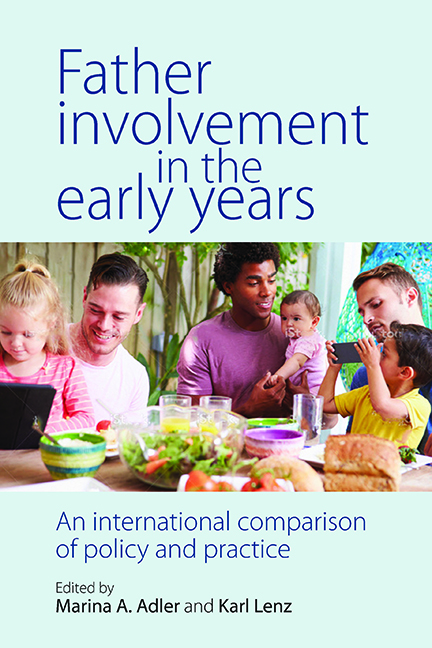Conclusion - Comparative father involvement: the dynamics of 231 gender culture, policy and practice
Published online by Cambridge University Press: 01 September 2022
Summary
The purpose of this book was to document current scholarship on the variations in father involvement with young children within the current cultural mandate of active fatherhood in several different policy contexts. The focus was on how ‘hands-on’ fathers are in selected countries and how their level of involvement with children occurs within the specific institutional constraints of the gender regime, family policies and workplace cultures that they live and work in. The cross-national analysis of father involvement is of particular interest to scholars and practitioners because gender-egalitarian societies require that women and men share the responsibility of providing and caring for future generations. In order to prioritise family well-being in the long run, fathers need to be empowered to participate in childcare just as mothers are empowered to participate in the labour market. With this in mind, this concluding chapter will distil the key information on the countries presented in the preceding chapters in order to find discernible patterns that may inform a new conceptual model of father involvement, as well as guide policymakers and practitioners working with fathers.
In this concluding chapter, after presenting a comparison of data from the six countries, the editors examine the extent to which the concepts of fatherhood regime, men's capability to care and agency gap are useful in understanding father involvement within the context of gendered cultures, policy regimes and individual practices. How do specific cultural norms regarding masculinity and maternalism, degrees of gender egalitarianism in family policy, and care-sensitive workplace cultures translate into specific fathering practices with young children? Based on the patterns found in the six countries, a conceptual model linking gender culture, policy and agency in terms of father involvement is presented. The interactions among national context (gender culture and policy regime), institutional context (economy, workplace culture, work time regime) and fathers’ capability and agency are discussed. In addition, some ‘best practices’ for increasing father involvement with young children in order to promote gender egalitarianism and family well-being are included.
Comparison of the six countries
Table 1 shows that, with the exception of the US, all countries included provide generous well-compensated (above 80% of pay) maternity leave, ranging from six weeks (UK) to 20 weeks (Italy).
- Type
- Chapter
- Information
- Father Involvement in the Early YearsAn International Comparison of Policy and Practice, pp. 231 - 252Publisher: Bristol University PressPrint publication year: 2015



